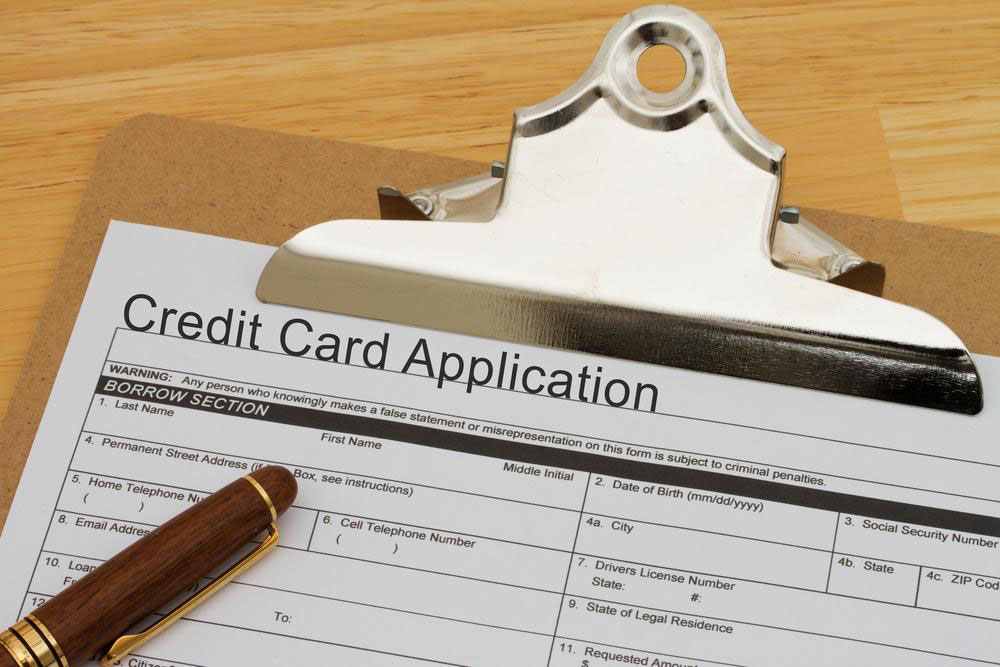Comprehensive Guide to Applying for a Credit Card Online in the United States
This comprehensive guide provides detailed steps and tips for applying for a credit card online in the US. It covers essential requirements like SSN, necessary documents, security tips, and strategies to build a strong credit profile from scratch. Perfect for students, newcomers, and those rebuilding credit, it emphasizes responsible usage and the benefits of establishing credit early. Follow this detailed overview to ensure a smooth and successful online credit card application process, enhancing your financial stability and access to better credit options in the future.

Step-by-Step Process for Effortless Online Credit Card Applications
Managing your finances effectively begins with obtaining the right credit card, and in today’s digital age, applying for a credit card online has become the most convenient and efficient way. Whether you're a student, a newcomer to the United States, or someone looking to rebuild or establish credit, understanding the application process is crucial. This comprehensive guide provides detailed insights into the prerequisites, application steps, and best practices to ensure a successful online credit card application.
Applying online simplifies the traditional process by enabling applicants to complete their applications from the comfort of their home or office. The key is to understand what requirements banks and financial institutions look for, and how you can meet or exceed these criteria to increase your chances of approval.
Essential Requirements for Applying for a Credit Card Online in the US
Foremost among the prerequisites is having a valid Social Security Number (SSN), which serves as the primary identifier for credit bureaus and lenders. The SSN is issued to individuals authorized to work in the US, including students with specific visas, and is used to track earnings, social benefits, and credit history.
Students enrolled on F-1, M-1, or J-1 visas are eligible to obtain an SSN if they meet certain criteria, such as employment authorization. Securing an SSN is a pivotal step in building your credit profile in the US. In addition to an SSN, applicants should prepare a set of supporting documents verifying their employment eligibility, identity, and age. Typical documents include government-issued ID, proof of income, and proof of residence.
While most institutions require an SSN, some banks and credit card providers offer options to apply without one, often using a Taxpayer Identification Number (TIN) or Individual Taxpayer Identification Number (ITIN). This flexibility can be especially beneficial for international students or newcomers who do not yet have an SSN.
Preparing Your Application: Essential Documents and Information
In addition to understanding the SSN requirement, it's critical to ensure you have a stable and verifiable address. This can be your home address, dormitory, or workplace location. Applicants should also demonstrate a reliable source of income, whether from employment, scholarships, or family support, along with a functioning bank account, which is typically required to process the application effectively. Having these in place not only streamlines the application but also increases the likelihood of approval.
Avoid submitting multiple credit card applications simultaneously. Frequent rejections can negatively impact your credit score and reduce your chances for future approval. Instead, focus on applying for cards that match your credit profile — for example, student credit cards or cards with lower credit limits suited for individuals establishing credit for the first time.
How to Safely Apply for a Credit Card Online
When applying online, security should be your top concern. Always verify that the website is secure by looking for "https" in the URL, indicating encryption. Avoid submitting personal information through unfamiliar or suspicious websites to prevent identity theft and fraud.
Popular credit card options in the US include American Express, Discover (DCU), and Visa cards from major banks such as Bank of America, Chase, and Citibank. Many of these issuers offer cards that are easier for new applicants to obtain and generally require paying the full balance each month to avoid interest charges.
Websites like www.usbank.com and other reputable financial platforms offer a variety of credit card choices tailored to different professional backgrounds and financial needs. These platforms often feature reward programs, cashback schemes, and introductory offers that can help maximize the benefits of your new card. Approval duration varies but typically spans from a few minutes to a few days, depending on the application details and credit checks.
Building and Maintaining a Strong Credit Profile
Once your application is approved and you receive your credit card, establishing a solid credit history is your next goal. Credit bureaus—Equifax, Experian, and TransUnion—collect data about your credit activities and generate your credit score. For newcomers and international students, credit history from abroad isn't transferred automatically, so establishing credit locally is essential.
This can be achieved by opening a secured credit card, which requires a security deposit that acts as your credit limit. The deposit minimizes the lender’s risk and increases your likelihood of approval. If you lack an SSN, a TIN or ITIN can sometimes be used as an alternative identification number.
Keep in mind that proving your residence with utility bills or bank statements, maintaining a steady income, and demonstrating responsible payment behavior will greatly improve your chances of building a favorable credit profile. Making payments on time, keeping your credit utilization ratio below 30%, and avoiding maxing out your card are foundational steps in this process.
Many store cards from retailers like Target, Kohl's, or Sears can also be a strategic way to build credit if you use them responsibly and pay on time. Remember to review each credit bureau’s requirements before applying, as some may not consider store card data in your overall credit profile.
Benefits of Establishing Credit in the US
Building a credit history offers numerous long-term financial benefits, including easier access to loans, favorable interest rates, and rental approvals. For international students and newcomers, establishing credit early helps facilitate utility setups, mobile phone plans, and even job opportunities that require credit checks.
Though initial rejections may occur, perseverance in building credit can lead to improved credit scores and broader financial options in the future. Overall, understanding the application process, preparing the right documentation, and practicing responsible credit habits are key to success in the US credit system.





